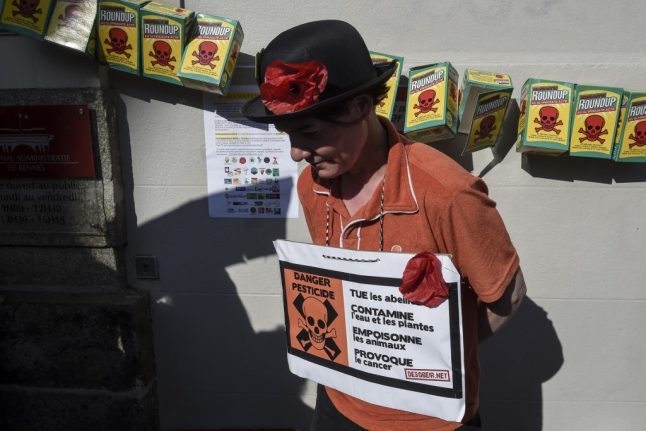Green groups have rejected as “derisory” the proposals to ban the spraying of pesticides on vegetables within 5m of homes. For taller crops like cereals or fruit trees, the exclusion zone would be 10 metres.
A public consultation has been launched on proposals to restrict the spraying of pesticides, which would extend a ban already in place on the spraying of pesticides near 'vulnerable' places like schools, nurseries and retirement homes.
READ ALSO OPINION: Why the French wine industry could be seriously bad for our health

But for many the plan does not go far enough.
“Five or ten metres is absolutely not a distance that could significantly reduce the exposure of residents to pesticides,” François Veillerette, director of the charity Générations Futures told France Info.
Yann Arthus-Bertrand, founder and president of the Good Planet Foundation, meanwhile, said he thought the proposal was “an April Fools joke”.
France is the country with the highest use of pesticides in Europe, but among the public there has been increasing worry about the use of agricultural chemicals.
In north west France one local mayor banned the spraying of pesticides within 150 metres of homes and schools within his commune.
However Langouet mayor Daniel Cueff has found himself in court as his ban exceeds the authority of local mayors.
The government's three week consultation opened online on Monday and the resulting decree is scheduled to be published in January 2020.



 Please whitelist us to continue reading.
Please whitelist us to continue reading.
Member comments